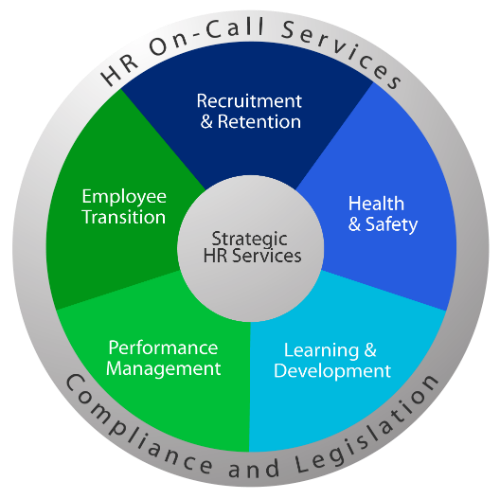댓글 0
등록된 댓글이 없습니다.


This short article is a submission by Managed Services Partners. Managed Services Partners is an outsourcing company with over 6 years of experience assisting companies improve operations and drive growth.

Embarking on the contracting out journey is a venture that lots of businesses carry out to enhance effectiveness, reduce expenses, and leverage specialized talent.

However, along with these prospective advantages come a host of legal and compliance intricacies that must be carefully browsed to guarantee the success and sustainability of contracting out efforts.
This comprehensive guide will explore key legal and compliance considerations, with a focus on information personal privacy laws, non-disclosure arrangements (NDAs), non-compete clauses, and the critical role of versatility in today's dynamic company environment.
The outsourcing landscape
Outsourcing is more than a strategy for unloading non-core tasks; it is a transformative approach that can improve a company's adaptability and competitiveness.
Whether it's IT services, customer assistance, manufacturing processes, or human resources, outsourcing can use a considerable edge. Companies that effectively outsource can concentrate on core service operations, drive development, and access top talent without the overhead expenses of full-time employment.
However, this journey is not without its legal and compliance obstacles. Companies should bear in mind the intricacies surrounding the transfer and management of data, the defense of copyright (IP), and the upkeep of regulative compliance.
Given the worldwide nature of outsourcing, organizations must also consider cross-border legal implications, which might differ considerably depending upon the country where the outsourcing supplier runs.
Understanding these aspects is important in guaranteeing that contracting out partnerships align with a business's tactical objectives while mitigating prospective legal risks.
Oftentimes, companies that overlook legal and compliance considerations deal with pricey conflicts, loss of delicate information, or reputational damage that can take years to recuperate from.
Importance of legal considerations
Outsourcing inherently includes legal factors to consider that are vital to a company's interests. At the leading edge is the requirement to secure delicate info. Companies should comprehend and comply with information personal privacy laws that govern the jurisdictions in which they operate.
This is especially important as data breaches can lead to severe monetary charges and reputational damage.
Furthermore, intellectual residential or commercial property rights should be clearly defined in contracting out agreements to avoid unapproved usage or misappropriation of exclusive possessions. If these rights are not effectively developed, a service may lose control over crucial innovations or personal business procedures.
For companies running in extremely regulated industries such as healthcare, finance, or legal services, compliance requirements are even more strict.
Sticking to guidelines such as the General Data Protection Regulation (GDPR) in Europe or the Health Insurance Portability and Accountability Act (HIPAA) in the United States is necessary to preventing legal problems.

Non-Disclosure Agreements (NDAs) and non-compete stipulations
When outsourcing, business frequently share proprietary details with external company.
To safeguard this important info, NDAs are utilized. These arrangements are created to avoid the unauthorized dissemination of confidential info, therefore securing the business's competitive advantage.
NDAs ought to be detailed and lawfully binding, clearly outlining what constitutes personal details and the obligations of both parties in handling delicate data. Businesses must also make sure that their NDAs consist of arrangements for legal recourse in case of breaches.
Similarly, non-compete clauses can be included to avoid service companies from exploiting delicate knowledge gained during the outsourcing collaboration to benefit a competitor. This is specifically important when outsourcing freelancers or firms that might have several customers in the exact same industry.
However, the enforceability of non-compete stipulations can differ significantly depending upon the jurisdiction. Some regions have strict guidelines restricting the scope and period of such clauses.
Therefore, it's vital for business to speak with legal specialists with experience in the pertinent legal structures to prepare reliable arrangements.
Contracts: Setting the foundation

Contracts function as the blueprint for the outsourcing collaboration, defining roles, obligations, deliverables, and timelines. They likewise lay out the legal and compliance expectations for both parties.
A well-structured agreement should resolve numerous key elements:
Scope of work: Clear and in-depth descriptions of the services to be offered, including quality standards and performance metrics.
Data security: Specific provisions related to information defense, information transfer procedures, and breach notification protocols to guarantee adherence to privacy laws.
Intellectual Property rights: Provisions that establish ownership of IP produced during the collaboration, and terms that safeguard pre-existing IP.
Termination provisions: Terms that address the possible end of the outsourcing relationship, including notice periods and conditions under which termination can occur without penalty.
Additionally, businesses should think about executing service-level contracts (SLAs) to guarantee responsibility and efficiency tracking. SLAs define measurable benchmarks that the outsourcing service provider must satisfy, supplying companies with option if expectations are not satisfied.
Engaging with company
Consulting with prospective service providers during the early stages of the outsourcing journey is a tactical relocation. This engagement enables companies to gauge the service provider's ability to satisfy legal and compliance requirements.
Thorough vetting processes, such as requesting referrals, evaluating previous tasks, and assessing compliance certifications, can provide valuable insights into the company's dependability and adherence to market standards.
Businesses must likewise examine the financial stability of potential outsourcing partners.
A service provider that deals with monetary difficulties might not have the ability to maintain operations long-lasting, posing a threat to ongoing projects. Conducting due diligence ahead of time can prevent future interruptions.
The role of versatility in legal and compliance strategies
Adaptability is an important component of effective outsourcing, especially when it comes to navigating progressing legal landscapes. Regulations and market conditions can alter rapidly, making it important for companies to remain agile.
Building versatility into contracts and establishing procedures for continuous compliance tracking can assist services adapt to brand-new legal requirements and keep a competitive edge.
For circumstances, if a business is outsourcing customer assistance operations to numerous countries, they should ensure compliance with various nationwide laws relating to customer defense and information privacy.
Regularly updating policies and agreements in response to legislative changes can prevent legal mistakes.
Real-world considerations and finest practices
To ensure legal and compliance success in outsourcing, organizations must embrace the following best practices:
Regular audits and evaluations
Conduct periodic audits and assessments to ensure that provider stay compliant with legal and regulatory requirements. This proactive technique can help identify potential gaps before they intensify into significant issues.
Training and awareness
Educate staff members and outsourced teams on information security practices and legal commitments. This guarantees that everybody included in the outsourcing journey understands the value of compliance and the role they play in safeguarding information.
Collaboration and communication
Foster a collaborative relationship with company. Open lines of interaction can help resolve compliance concerns without delay and assist in joint problem-solving efforts.
Crisis management planning
Have contingency strategies in place in case of security breaches, agreement disagreements, or company failures. A well-structured crisis management plan ensures that organizations can quickly react to challenges without considerable disruptions.
Legal compliance for outsourcing success

Understanding the legal and compliance elements of outsourcing is necessary for services wanting to leverage external capabilities while safeguarding their interests. By focusing on essential areas such as data personal privacy, NDAs, non-compete stipulations, copyright rights, and adaptability, companies can efficiently navigate the outsourcing landscape.
Successful outsourcing depend upon a collaborative method between the company and its service providers. Building trust and maintaining transparent communication can result in effective analytical and a shared dedication to compliance.

0등록된 댓글이 없습니다.